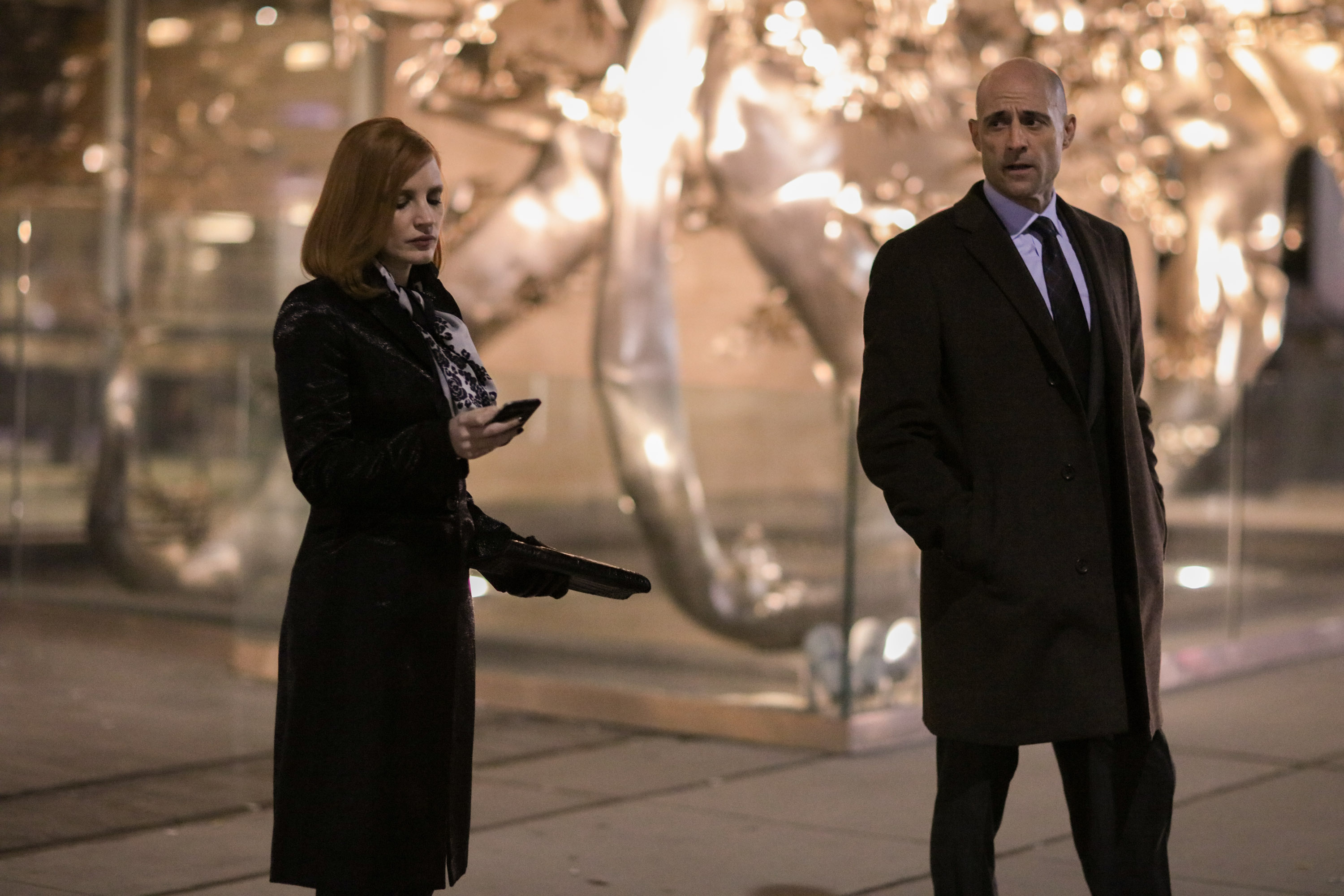
Jessica Chastain sternly faces a Congressional inquiry in MISS SLOANE
Miss Sloane is the story of a political lobbyist whose unconventional and morally ambiguous methods make her polarizing and magnetic simultaneously. When Sloane (Jessica Chastain) is seduced by a case that would pit her against the gun lobby, a notoriously equally ruthless organization, her desire to always win no matter the cost is put to the test as she blurs lines and hurdles over them if and when necessary (as of course determined solely by her). The result of her actions here are uncertain—even with a stellar winning record to date, her aim of making it harder for individuals to procure firearms through background checks may jeopardize her career, her relationships, and possibly even the lives of others.
What works in Miss Sloane are Chastain and the fantastic script she commands. Chastain is essentially always “on” as Sloane, constantly working angles, anticipating outcomes, and finding pressure points to squeeze. For example, while it’s a minor point in the narrative as part of a montage, one sequence finds Sloane coaxing a religious Southern senator to vote for her cause. Her dress for this exchange notably more muted and conservative, she meets her target in a church, and her impassioned plea—delivered with a slight drawl—is dotted with references to the Good Lord.

In her natural habit, the political swamp of D.C., Sloane is hunting at all hours. As a result, she battles with an addiction to psychostimulants in order to ward off sleep, a habit she masks with charcoal-smoked eyeshadow, accentuating her steely demeanor. This demeanor is carefully played by Chastain down to the character’s bones, which is borderline frightening because the actress commands Sloane so convincingly it makes you believe (or perhaps acknowledge) people with a such warped perspective of the world exist.
Characters, as engaging as they may be, require a universe to expand in, and a story to traverse. With his magnificent script, Jonathan Perera recreates Washington, populating it with members of congress, activists, lawyers, and other colorful idealists most of whom audiences will swear are based on people ripped from the headlines. And in this world, Perera weaves an interesting and engaging web of deception and compromise like a game he’s making his characters play; Sloane repeatedly uses chess and card game analogies, which serve as direct metaphors for the narrative. The result is a story that will likely keep audiences rapt, curious, and guessing.

As wonderful as Chastain is with the material she’s been given, there are some elements audiences should be aware of before deciding to watch Miss Sloane. First is its political nature. Miss Sloane explores a debate about the 2nd Amendment that has been growing in fervor for several years, and not-so-subtly paints one side as “right” and the other as “wrong” just by the designation of the protagonists and antagonists. Next, the character of Sloane may be considered reprehensible due to her “whatever-it-takes” activity. She is balanced by a crew of people who constantly try to take more moral high ground, but in a few cases this simply makes Sloane look vile, comparatively. Finally, some of the events may feel too coincidental if examined or considered too carefully.
Miss Sloane, at its core, is a fantastic political thriller that refreshingly focuses on a super-empowered sharp woman, executed memorably by Chastain. While the material may not resonate with all, those who appreciate the genre will find lots to enjoy.
Grade: A-
Photos courtesy of EuropaCorp